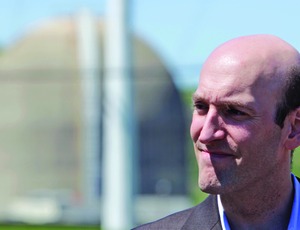Industry sources say a new report from the Nuclear Regulatory Commission's Japan Task Force recommending a sweeping overhaul of the regulations ensuring that the nation's 104 nuclear powerplants operate safely is a positive first step, but it is by no means a definitive response to the crisis at Fukushima.

“It's hard to make concrete recommendations based on a situation that is still evolving,” says Ralph Hunter, senior executive and vice president for the commercial nuclear division at Oradell, N.J.-based Burns and Roe.
Nevertheless, several industry firms say they expect significant work in upgrading nuclear facilities as a result of the task force's recommendations. “The way I read the report, I think it will result in some fairly significant modifications to at least some nuclear powerplants in this country,” Hunter says.
A six-member task force, led by NRC veteran Charlie Miller, released a report on July 13 that said a sequence of events like those that occurred following the Fukushima accident is unlikely to occur in the U.S. The task force also claimed the nation's fleet of powerplants remains safe. However, the existing regulatory approach, developed “piece by piece” over decades, is a “patchwork,” the task force said. “The task force believes that improving the NRC's regulatory framework is an appropriate, realistic and achievable goal,” the report concludes.
The task force developed a set of 12 recommendations—many with both short-term and long-term elements—to increase safety and redefine what is an adequate level of protection for public health. The task force particularly focused on checking for seismic and flooding safety and making upgrades when necessary as well as making modifications to ensure that spent-fuel pools continue to retain water in the event of a station blackout.
However, according to many industry officials, it is too early to say what recommendations will be supported by the NRC's five commissioners. “This is a first step in what will be a lengthy process,” says Tony Pietrangelo, senior vice president and chief nuclear officer at the Nuclear Energy Institute. “We believe there is room for enhancement at our facilities,” he says. “The entire report will need to be vetted” by the NRC commissioners, staff and industry. “It remains to be seen which recommendations will be implemented,” he adds.
Pietrangelo says it is too early to estimate how much it would cost to upgrade facilities to comply with new seismic and other regulations.
Jeff Merrifield, senior vice president of the power group at Baton Rouge, La.-based Shaw and a former NRC commissioner, says, to implement the recommendations, the task force will need to get approval from all five commissioners. That will require more time, he says, as the commissioners rely on staff and industry input to gain a better understanding of an appropriate course of action. “I think a lot more work needs to be done to determine how [Fukushima] affects the United States and what changes need to be made,” he says.
At a July 19 public hearing, Commissioners William Ostendorff and Kristine Svinicki questioned whether a wholesale overhaul of nuclear regulatory policy was necessary. One of the commissioners, Gary Holohan, answered that the NRC and industry have dealt with situations, such as security concerns following 9/11, on a case-by-case basis. “What we're suggesting is, if we can talk about these things in advance, then perhaps we'd have a more holistic and cohesive approach,” he said.
While some observers wonder whether a major regulatory overhaul is likely, Mike Wadley, vice president of nuclear business development at Overland Park, Kan.-based Black & Veatch, thinks it likely the NRC is “trending” toward taking a more regulatory approach to issues it formerly made voluntary. “I think one of the things that comes out of this is a more structured safety response to what they referred to as 'very low-probability, high-consequence' events.”


Post a comment to this article
Report Abusive Comment